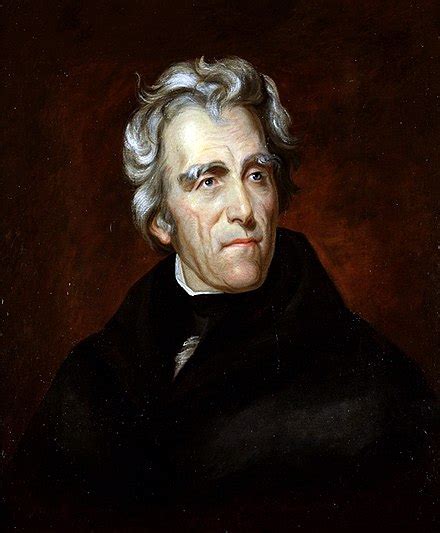Introduction

Andrew Jackson, the seventh president of the United States, is a polarizing figure in American history. His presidency was marked by both great achievements and significant controversies. One of the most debated aspects of Jackson’s legacy is his stance on various political and social issues. While he is generally associated with certain policies and beliefs, there is one notable exception that challenges our understanding of his ideology.
Andrew Jackson’s Political and Social Beliefs
Andrew Jackson was a staunch supporter of several key policies and principles:
- Expansionism: Jackson believed in the expansion of the United States, particularly westward into the Louisiana Territory.
- States’ rights: Jackson advocated for the rights of individual states to make their own decisions, often opposing federal overreach.
- Democracy: Jackson supported the expansion of suffrage and the participation of the common man in government.
- Economic protectionism: Jackson was a proponent of tariffs to protect American industries from foreign competition.
- Indian removal: Jackson believed in the forced removal of Native Americans from their ancestral lands.
The Exception: Andrew Jackson and the National Bank
In stark contrast to his aforementioned beliefs, Andrew Jackson vehemently opposed the establishment of a national bank. This position is particularly noteworthy given his support for most other pillars of American economic policy at the time.
Reasons for Jackson’s Opposition to the National Bank
Jackson’s opposition to the national bank stemmed from several concerns:
- Democratic Arguments: Jackson believed that a national bank would concentrate financial power in the hands of a small elite, undermining the democratic principles of government.
- Limited Government: Jackson feared that the creation of a national bank would expand the federal government’s authority beyond its constitutional limits.
- Economic Concerns: Jackson believed that a national bank would benefit wealthy merchants and bankers at the expense of farmers and laborers.
Confrontation with the Bank
Jackson’s opposition to the national bank escalated into a major confrontation during his presidency. In 1832, he vetoed the renewal of the Bank of the United States’ charter. This act sparked a financial crisis known as the “Panic of 1837.”
Legacy and Impact
Jackson’s decision to oppose the national bank had significant consequences:
- Economic Crisis: The Panic of 1837 crippled the American economy, causing widespread unemployment and business failures.
- Political Division: Jackson’s actions deepened political divisions between those who supported the bank and those who supported Jackson’s democratic ideals.
- Erosion of Federal Power: Jackson’s successful challenge to the national bank weakened the federal government and contributed to the growth of state power.
Conclusion
Andrew Jackson’s opposition to the national bank stands as a notable exception to his overall political and social beliefs. This stance demonstrated his strong commitment to democratic principles, limited government, and the interests of the common man. While his actions led to an economic crisis, they also had a lasting impact on the balance of power in the United States. Ultimately, Jackson’s legacy is complex and multifaceted, shaped by both his unwavering principles and the controversial decisions he made.
